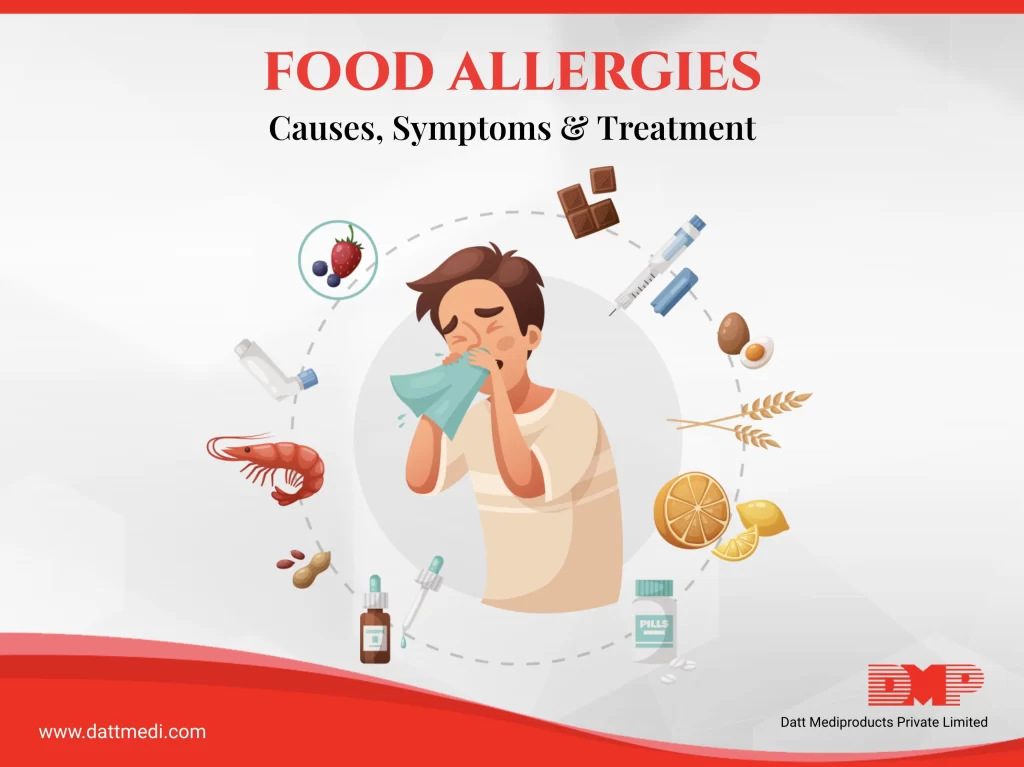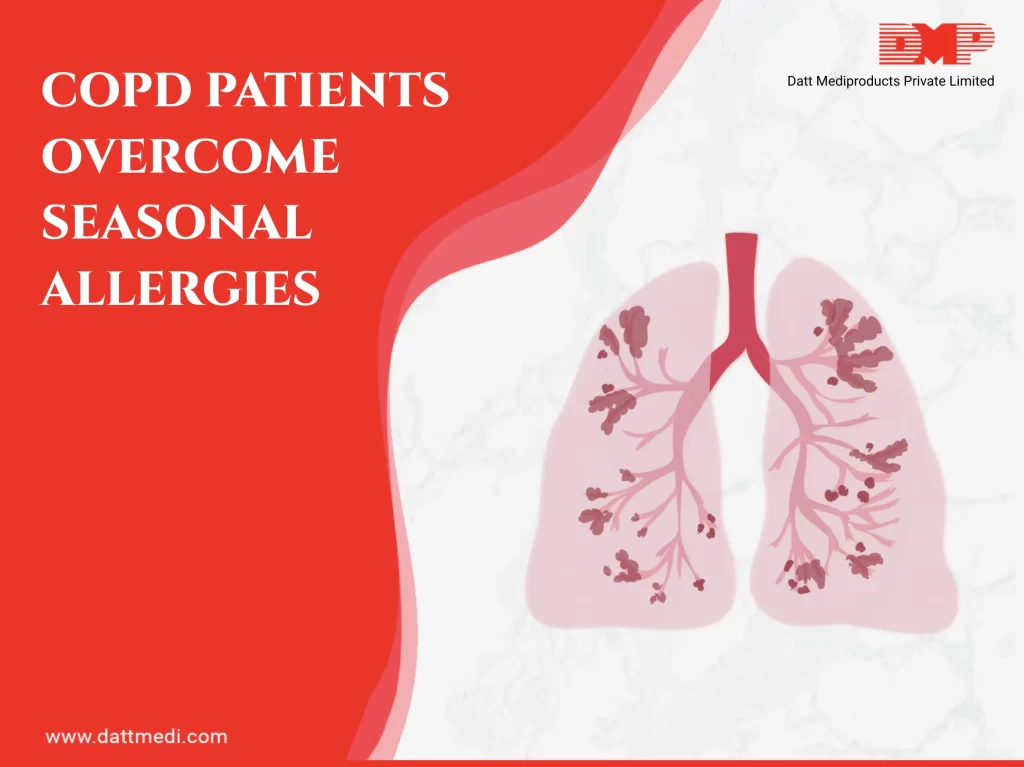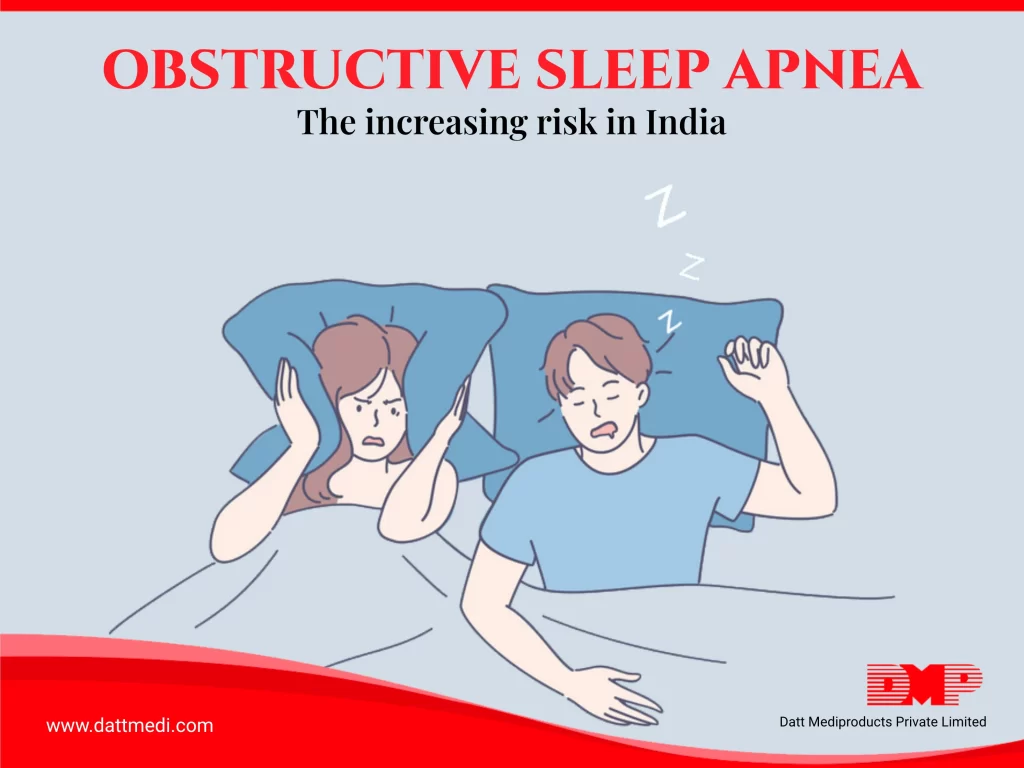
Has your food ever made you uncomfortable?
Have you ever experienced any unusual reaction in your body post eating some specific foods or have you encountered symptoms like hives, itching, or vomiting?
This is an allergic reaction from the food you ate.
Food Allergy is an over-reaction of your immune system towards certain foods. The body’s defense mechanism treats these foods as invaders, just like a bacterium or a virus, releasing some specific chemicals to defend against them. This includes a range of protective measures such as histamine release, which causes inflammation. Even a tiny amount of a substance in your food can trigger an allergic response.
Food allergy may be divided into types: IgE mediated allergy or Non-IgE mediated food allergy, depending upon the release of the IgE antibody.
Some Info: Immunoglobulin E (IgE) are the antibodies produced by our immune system in case of allergies. These travel to cells that release chemicals and cause allergic reactions.
Symptoms & Complications:
Food allergy is most common in babies and children. Symptoms may be mild but fatal. The most severe allergic reaction is called ANAPHYLAXIS.
Food allergy can affect our digestive system, skin, respiratory system, or even cardiovascular system. Sometimes, food allergy is often confused with food intolerance but both are different.
The symptoms range from mild to severe and may include the following:
– Stomach cramps or pain
– Vomiting/nausea sensation
– Hoarse throat & trouble while swallowing
– Swelling of the tongue, face, lips or other body parts
– Shortness of breath, nasal congestion, trouble inhaling
– Continuous cough, wheeze
– Weak pulse, loss of consciousness
– Shock or circulatory collapse
– Dizziness, fainting
– Hives, itching or eczema
ANAPHYLAXIS:
It is the most fatal and potentially life-threatening allergic reaction. Symptoms may take a few hours to develop. It impairs normal breathing and sends the body into shock. Various body parts may be affected simultaneously.
Few symptoms may include airways constriction, breathing problems, swollen throat, rapid swelling of the lips, face and mouth, anaphylactic shock causing sudden & severe drop in blood pressure, tachycardia, and dizziness.
Symptoms can occur within a few minutes to several hours later after exposure. Delayed responses are mostly seen in children who may develop eczema.
– Food Protein-Induced Enterocolitis Syndrome(FPIES):
This is another delayed food allergic reaction that usually occurs after consuming milk, soy, or certain grains, generally within two to six hours. This happens when infants or babies are exposed to these foods for the first-time causing vomiting, dehydration, or bloody diarrhea.
– Oral Allergy Syndrome (OAS):
Being allergic to one food may trigger an immune response against other foods also, which are similar. This is referred to as cross-reactivity and occurs when allergy antibodies confuse the proteins in fresh fruits, nuts, or vegetables with pollen. Thereby, it is also called as Pollen-food syndrome.
The Common Food Allergens:
Although it’s possible to develop an allergy from any kind of food substance, however, the following food allergens have been identified as the most common ones:
-Cow’s milk
– Eggs
– Tree nuts such as almonds, brazil nuts, walnuts, cashews, pistachios, pine nuts, etc.
– Wheat, which is often confused with non-celiac gluten sensitivity.
– Soy products
– Chocolates
– Fish allergy, affecting almost 2% of adults.
The main symptoms include vomiting & diarrhea.
– Shellfish including crabs, shrimps, and mussels.
– Any food can be allergic to anybody. Apart from the above-mentioned food substances, the list may even include sesame seeds, mustard seeds, linseed, chamomile, garlic passion fruit, kiwi fruit, banana, avocado, etc.
Diagnosing food allergies can be challenging.
Therefore, we @Dattmediproducts recommend seeking a doctor’s advice in case of the occurrence of any of the food allergy symptoms soon after eating. Anaphylaxis must be followed by an emergency treatment because an untreated condition can make a patient go to coma or even death.




